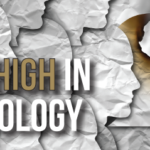Survey results showed a one point increase in burnout measured on a 0–10 scale was directly associated with ITL, while a one point increase in professional fulfillment was inversely associated with ITL. Outcomes were adjusted for demographics.
“When people are more fulfilled in their jobs, they’re less likely to leave,” says Dr. Ligibel. “Conversely, if they are more burned out, they are more likely to leave.”
Burnout and fulfillment weren’t always opposing forces, however.
“These are often inversely related, but not always. … There were some groups that were found to have higher levels of burnout and yet they were highly professionally fulfilled,” says Dr. Ligibel. “There were other groups that weren’t very burned out, but they still weren’t professionally fulfilled. … The two things are related, but they are not always directly related to each other.
“It’s not just that you’re not burned out, but you really do need to be engaged in the work that you’re doing to want to stay.”
The authors note that several individual and institutional factors were significantly associated with either high or low rates of ITL after adjustment for gender, age, race, specialty, burnout and professional fulfillment.
Depression and a negative impact of work on personal relationships contributed to a higher ITL rate, states the article. Peer support, aligned values, COVID-19 organizational support and EHR helpfulness were among factors associated with lower ITL.
The study findings reflect similar concerns expressed by Dr. Iyer, who says various aspects of well-being are often connected. The stress on young parents like herself, juggling schedules and priorities both at home and work, can increase a feeling of burnout, she says.
At the office, tending to electronic health records often requires repeated resubmission of paperwork on denied prescriptions, which is frustrating because the task is not adequately compensated and takes up valuable time, says Dr. Iyer.
“So if I’m seeing patients from 8 to 5 and I’m frequently booking through my lunch hour, the only time I can get to all of this is before 8 or after 5,” says Dr. Iyer. “Many times, that’s not appropriate care.
“So, I think that would lead to an increase in burnout, and I directly attribute that to administrative burden.”
Mental Health Challenges
Dr. Iyer believes it’s also important to promote well-being among academic physicians beyond the structure of work life. Encouraging physicians to discover outside interests, take up a hobby, or become physically active fosters good mental health, she says.


